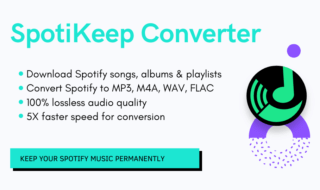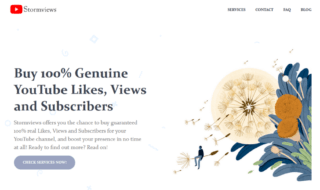In today’s hyper-connected digital world, your online presence isn’t just a resume builder—it’s your first impression, your dating profile, and your personal brand, all rolled into one. If you’re not on Google, you’re practically invisible, especially in the dating world. Whether you’re swiping on apps, being set up by a friend, or even just catching someone’s eye in a coffee shop, chances are the next move isn’t just a text—it’s a search. If nothing comes up, that’s not just strange anymore; it’s suspicious.
Contents
The Digital Background Check Is Real
We live in the age of the digital background check. Before meeting someone for a first date, many people will do a quick search to learn more: Are they real? Do they seem safe? Do we share common interests? It’s not just about safety—it’s curiosity, too. If you’re not showing up, you’re missing a crucial opportunity to make a good impression.
A few years ago, this might’ve seemed excessive, but today it’s normal. In fact, it’s expected. According to a Pew Research Center study, over 60% of people who use dating apps admit to Googling their matches before meeting in person. If they can’t find you? That raises red flags.
Why Not Being Googleable Makes You Look Suspicious
Let’s be blunt: in a time when everyone and their dog has an online footprint (literally—there are Instagram-famous pets), having no digital presence makes you an outlier. And when it comes to dating, outliers are often viewed with caution, not curiosity.
Here’s how a lack of online presence can be interpreted:
You’re hiding something. Are you married? Using a fake name? Avoiding being found for some reason?
You’re not real. With catfishing still a very real concern, people want digital confirmation that you exist.
You’re not tech-savvy. While this isn’t necessarily a dealbreaker, it can suggest you’re out of step with modern norms.
You’re antisocial or disconnected. Not having a digital presence can make people wonder if you’re intentionally removed from society.
Even if none of these are true, perception matters. Dating is a high-stakes first impression game, and not showing up in a Google search is like showing up to a date in sunglasses and a hoodie—people will wonder what you’re hiding.
Google Is Your New Dating Profile
While dating apps remain the go-to platforms for meeting people, they’re only the start of your digital impression. Think of Google as your dating resume. The first few search results that pop up when someone types in your name are more important than your Hinge bio.
So what should show up when someone Googles you?
Your LinkedIn profile. Even if it’s not dating-specific, it gives credibility. It shows you’re real, professionally active, and socially integrated.
A few social media accounts. Instagram, Facebook, X (formerly Twitter), TikTok—whatever platform suits your personality. Your online personality gives people a sense of who you are outside of a carefully curated dating profile.
Any passion projects or hobbies. Maybe you have a blog, a YouTube channel, or you’re featured in local news for something interesting. That helps tell your story.
This doesn’t mean you need to be an influencer. You don’t need 100k followers. But you do need to exist in the digital space, in some form, with a consistent, honest image.
How to Create a Date-Ready Digital Presence
If you’re reading this and realizing you’re basically a digital ghost, don’t panic. You don’t need to become a social media star overnight, but you do need to take a few steps to make yourself visible—and relatable—online.
Start with LinkedIn. Even if you’re not active on dating apps, LinkedIn gives credibility. It’s often the top Google result for most people. Fill it out, add a photo, and keep it updated.
Claim your name. Create basic profiles on popular platforms using your real name (or a consistent version of it). Use the same profile photo where possible for recognition.
Post occasionally. You don’t need to be daily active, but occasional updates on your interests, travels, or professional achievements help populate your digital footprint.
Be yourself—online. The key is authenticity. If you’re outdoorsy, show your hiking trips. Into art? Share museum visits. You’re curating a virtual reflection of your real life.
Google yourself. See what others see. If nothing shows up, start building. If outdated or negative content appears, take steps to push it down with more current, positive content.
Dating in the Age of Digital Transparency
Dating today is no longer just about physical chemistry or clever banter. It’s about transparency. People want to feel like they can trust you, and a healthy digital presence provides that reassurance. It gives potential partners a glimpse into your world—your passions, your social life, your values.
In many ways, your Google presence is the new first impression. Long before you shake someone’s hand or share your favorite Spotify playlist, your digital self is making quiet introductions on your behalf.
But What About Privacy?
Yes, maintaining boundaries is important. You don’t need to expose your entire life to the internet. But being completely invisible? That’s the other extreme. Like it or not, dating in 2025 requires a basic level of transparency. The goal isn’t oversharing—it’s accessibility. A simple Google search should be able to confirm you’re real, interesting, and engaged in the world around you.
If you’re concerned about privacy, set your social accounts to limited visibility, but still let your name and a few public details show. Consider separating personal and professional profiles. The key is balance.
Final Thoughts
If you’re not on Google, you’re not just missing out on job opportunities or professional connections—you’re missing out on love. In a world where dating is increasingly digital, not having an online footprint is a major handicap. It’s not about vanity; it’s about trust, relatability, and presence.
So take the time to build a digital presence that reflects who you really are. Not a polished, filtered version—but a real, human one. Because whether you like it or not, your next potential partner is probably going to Google you—and they’re hoping to like what they see.



